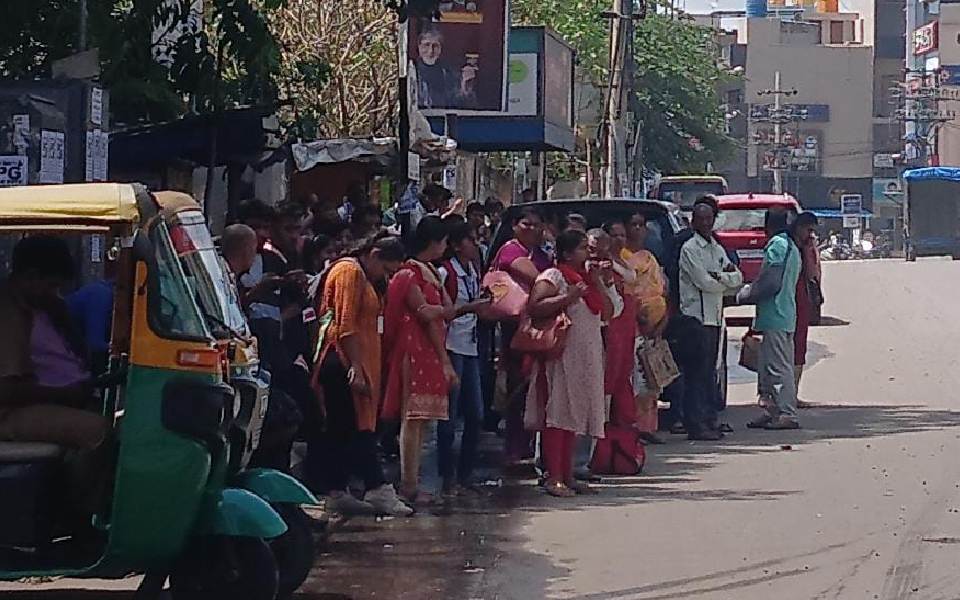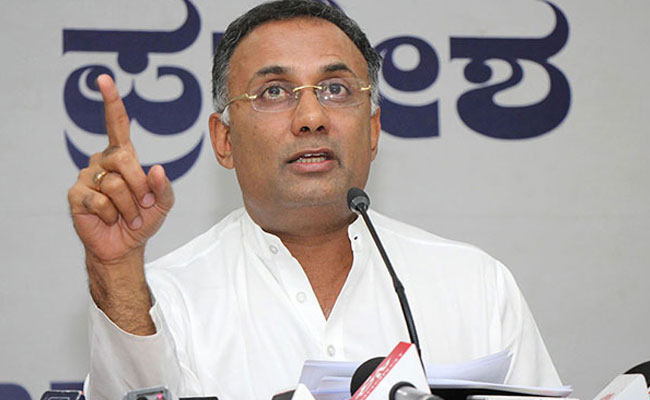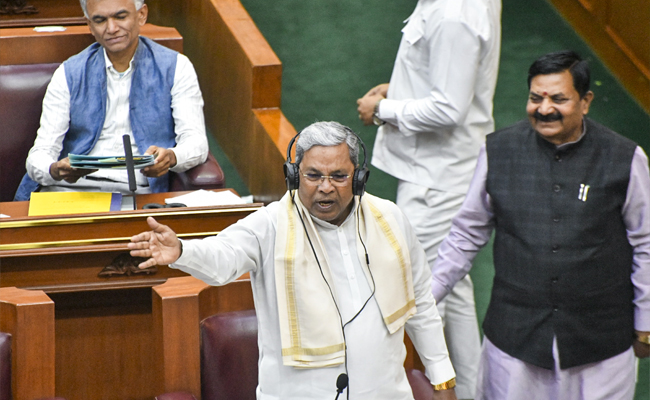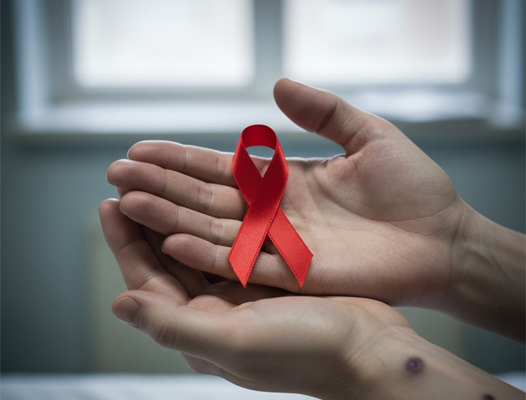Bengaluru: Following the announcement of the "Shakthi" yojana by the Karnataka government, which provides free bus services for women across the state, students in Bengaluru have expressed concerns about decreased bus availability and overcrowding during peak hours.
The "Shakthi" Yojana, one of the five flagship guarantees promised by the Congress government, was inaugurated on Sunday, allowing women, including transgender, to travel for free in non-luxury and city buses operated by state government, throughout the state.
However, on the first day of its operation, several female students raised complaints about the reduction in bus services. They observed a larger than usual crowd at bus stands, causing delays and overcrowding. Neha Pradhan, a student at St. Paul's College, shared her experience, stating, "My friends and I noticed an unusually large crowd at the bus stand near Sapthagiri Engineering College. Despite waiting for 15 minutes, the bus did not arrive as it normally would with a frequency of two minutes. As a result, we had to take a private bus towards the 8th mile."
ALSO READ: Karnataka Deputy CM DK Shivakumar files appeal against grant of sanction to CBI for prosecuting him
Disha. P, another student from the same college who frequently travels from Kunigal to Bengaluru city, also faced similar challenges. She had to wait for long hours for the bus to arrive, and when it did, it was overcrowded. She said, "I saw women arrive in large numbers at Binnamangala and other areas."
Nithya, a student of MLaC College, shared a similar experience. She mentioned the difficulty of boarding buses due to the increased crowd, especially considering the presence of multiple women's colleges near the Malleshwaram vicinity.
When approached for comment, a BMTC bus conductor working on the BC-7B 8th Mile to Byadarahalli route, where students had complained of reduced services, stated that the bus services ran as usual on their route. However, he acknowledged witnessing a large number of women passengers on that day.
Let the Truth be known. If you read VB and like VB, please be a VB Supporter and Help us deliver the Truth to one and all.
Belagavi (PTI): Accepting that the female foeticide has not stopped in the state, Karnataka Health Minister Dinesh Gundu Rao on Tuesday said that the government is taking strict measures to prevent it.
The minister said the government is appointing separate nodal officers in all districts and tightening measures to prevent foeticide, which he called a "social evil".
He also assured that the government will consider strengthening legislation to control such activities.
The minister was responding to a question by BJP MLC C T Ravi in the Legislative Council.
"Female foeticides have certainly not stopped. If you look at the sex ratio, there is a lot of difference. I accept that this is happening," Rao said.
"Foeticides are not happening under pressure; voluntarily, it is happening, for not wanting a girl child. These things are happening based on the sex determination of the foetus at some hospitals. Sex determination is illegal, but with the advancement in technology, portable ultrasound machines have been developed, which can be easily carried anywhere, and scans and tests can be done. This needs to be controlled. We will bring it to the notice of the central government," he said.
In some districts and in a few hospitals, a higher number of male child births is happening. It is found with the help of intelligence input, the minister said.
"Information is being gathered on the taluk in which the male-female ratio is worsening, what is happening in which hospital, and appropriate action is being taken to crack down on such a network, after proper evaluation."
Decoy operations have been done at seven places in the last two years, to identify those involved in illegal activities linked to female foeticides, and actions have been taken against officials and hospitals involved, he said, adding that more needs to be done on priority.
Responding to a question by Ravi about whether any stringent legislation is being brought, Rao said, the government will consider strengthening the legislation and making it stricter to control this.
"Some amendments have been made to the existing laws in the last two years....advanced technology and the internet is being used to carry out such things, also oral medicines for abortions are available over the counter.
We need to look into bringing legislation to control them. The Food and Drug Administration has issued instructions to pharmacists that the sale of such drugs should be documented."
The minister also said that measures are also being taken for the effective implementation of the Pre-Conception and Pre-Natal Diagnostic Techniques (PC & PNDT) Act, and awareness is being created against the identification of female foetuses and female foeticide.





